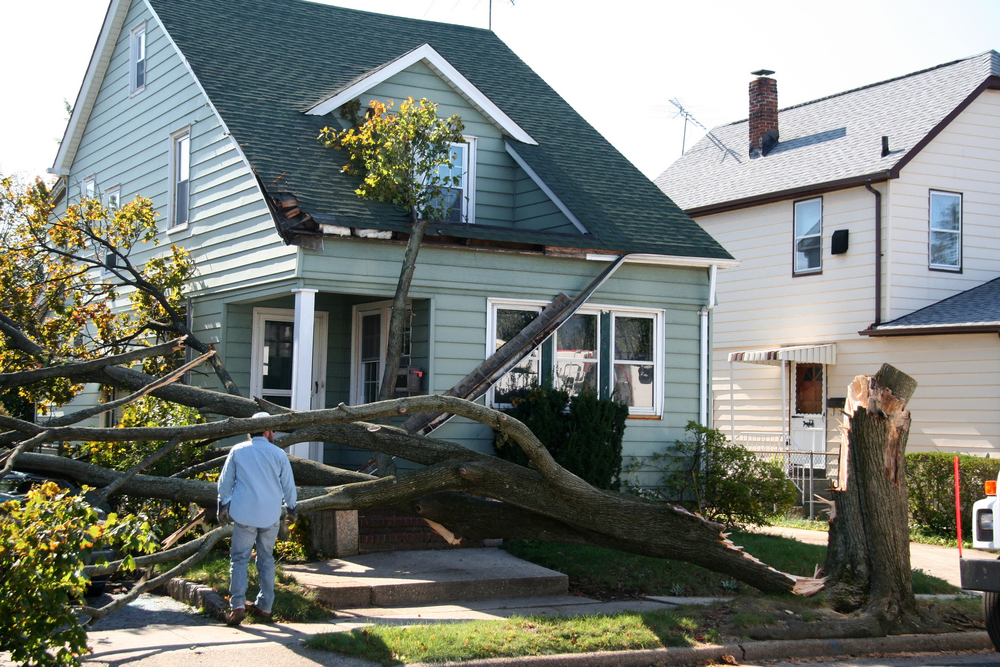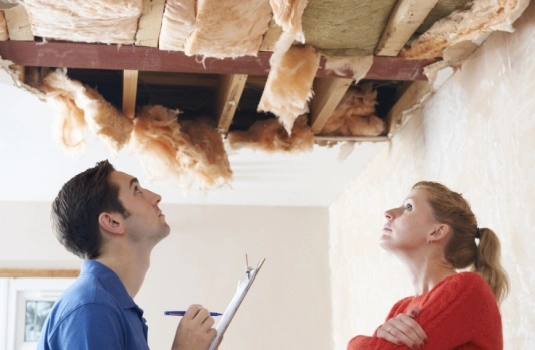
Sometimes things that are out of your control, such as natural disasters or fires, wreak havoc on your home. It’s an unfortunate reality. But it’s a very real one for thousands of Georgians every year. And that’s why people purchase homeowners insurance.
As much as you dread the possibility of your home being damaged, it brings you comfort to know that you have coverage to help with repairs.
However, as many people find out – filing a claim doesn’t necessarily mean it will be accepted. It can be a frustrating experience to be denied, but it’s important to understand why it happened.
Some of the most common reasons include lack of coverage, policy exclusions, and insufficient evidence. It’s always a good idea to review your policy and understand its terms and conditions fully so that you can avoid sticky situations. And if you do find yourself in a situation where your Georgia homeowners’ claim has been denied, don’t be afraid to reach out to your provider to discuss your options.
In this article, we’ll review the top six reasons why Georgia homeowners’ claims get denied.
1. Waiting Too Long to File
One of the most important steps for filing a homeowners claim is to do so in a timely manner. Delaying can make it more difficult for your insurer to process it. And it may even lead to its being denied altogether, resulting in no coverage for you. Don’t wait too long to get the ball rolling – like any good relationship, an effective working dynamic between you and your insurer requires proactive communication and collaboration.
Not sure what too long means? In the state of Georgia, that typically means waiting more than 12 months from the date of the loss.
So chop-chop! If you suffered a loss and need to file a homeowners claim, get on top of it today!
2. Liability Denial
Liability denial can act as a roadblock that’s difficult to get around since companies will rely on legal documents to not payout any settlements. When an insurance company denies liability, this basically means that it isn’t taking responsibility for the damages that you claim.
It’s not disputing the existence of those damages, but the company doesn’t feel that they’re covered by your policy. It is important to know that even if you think the damage to your home is covered, it won’t matter much if the insurer does not accept responsibility. The best thing you can do to protect yourself in these cases is to ensure you have adequate liability coverage with language that is clear and concise.
3. Coverage Exclusions
As a homeowner, it’s important to understand what your policy covers — and doesn’t cover. Certain events or types of damage (known as “exclusions”) may be excluded from coverage, which means filing a claim for them likely won’t result in a payout. These will be clearly stated in your policy. So it’s important that you review it thoroughly.
Common homeowners insurance coverage exclusions include flooding, earthquakes, intentional damage, and normal wear and tear. Before disaster strikes, review your policy details and exclusions so you’re not upset if a claim is denied. Knowing the limitations of your coverage can help you determine if additional riders or separate policies are worthwhile to protect against uncovered risks.

4. Damages Less Than Deductible
While deductibles are in place to discourage small claims and keep premiums low, they can be frustrating when damage occurs just under your deductible amount. If damage to your home is less than your deductible, your insurance company will likely deny a claim for the repairs.
The costs to fix the damage may be worth paying out of pocket in this scenario rather than filing a claim and risking a rate increase. However, for significant but not quite deductible-reaching damage, it’s worth contacting your provider to discuss your options and see if they’re willing to work with you on a solution. With a little negotiation, you may be able to get the necessary repairs covered and avoid extra costs.
5. Incorrect or False Information
When filing a homeowners claim in Georgia — or anywhere, for that matter — it’s important to be truthful with all the details you provide. Even small inaccuracies or falsehoods on a form can give your insurance company a reason to deny it.
Companies conduct thorough investigations of claims, and if they find any indication of fraud or deception, they are within their rights to reject the claim. Being upfront and honest in the claims process, even if the truth is inconvenient, is the best way to ensure your claim has the best chance of being approved.
6. Insurance Company-Related Error
Lastly, it’s possible that your provider might deny you because of an internal error. The company may mistakenly think that your claim is excluded from your policy or not coverable. If you think this is the case, it’s important to contact your insurer immediately for a case review. Explain to your insurance agent why you believe your claim is covered under your policy, and reference your plan’s wording in detail.
Although they’re rare, mistakes do happen. So it’s a good practice to always be on the lookout and make sure you get what you’re owed.